『武士道 Bushido 』-新渡戸稲造(Inazo Nitobé)-
Chapter 16
(Is Bushido Still Alive? 武士道は蘇るか)
Bushido, the Soul of Japan by Inazo Nitobe
[Book]
[reading]
・Chapter TOP 新渡戸稲造(Inazo Nitobé)TOP
・Chapter 00(Prefaces 序文)
・Chapter 01(Bushido as an Ethical System 武士道とは)
・Chapter 02(Sources of Bushido 武士道の源)
・Chapter 03(Rectitude or Justice 「義」)
・Chapter 04(Courage, the Spirit of Daring and Bearing 「勇」)
・Chapter 05(Benevolence, the Feeling of Distress 「仁」)
・Chapter 06(Politeness 「礼」)
・Chapter 07(Veracity or Truthfulness 「誠」)
・Chapter 08(Honor 「名誉」)
・Chapter 09(The Duty of Loyalty 「忠義」)
・Chapter 10(Education and Training of a Samurai 武士は何を学びどう己を磨いたか)
・Chapter 11(Self-Control 人に勝ち己に勝つために)
・Chapter 12(The Institutions of Suicide and Redress 「切腹」)
・Chapter 13(The Sword, the Soul of the Samurai 「刀」)
・Chapter 14(The Training and Position of Woman 武士道が求めた女性の理想像)
・Chapter 15(The Influence of Bushido 「大和魂」)
・Chapter 16(Is Bushido Still Alive? 武士道は蘇るか)
・Chapter 17(The Future of Bushido 武士道から何を学ぶか)
・[修養]、
・[自警録]
Or has Western civilization, in its march through the land, already wiped out every trace of its ancient discipline?
It were a sad thing if a nation's soul could die so fast. That were a poor soul that could succumb so easily to extraneous influences. The aggregate of psychological elements which constitute a national character, is as tenacious as the "irreducible elements of species, of the fins of fish, of the beak of the bird, of the tooth of the carnivorous animal." In his recent book, full of shallow asseverations and brilliant generalizations, M. LeBon says, "The discoveries due to the intelligence are the common patrimony of humanity; qualities or defects of character constitute the exclusive patrimony of each people: they are the firm rock which the waters must wash day by day for centuries, before they can wear away even its external asperities." These are strong words and would be highly worth pondering over, provided there were qualities and defects of character which constitute the exclusive patrimony of each people. Schematizing theories of this sort had been advanced long before LeBon began to write his book, and they were exploded long ago by Theodor Waitz and Hugh Murray. In studying the various virtues instilled by Bushido, we have drawn upon European sources for comparison and illustrations, and we have seen that no one quality of character was its exclusive patrimony. It is true the aggregate of moral qualities presents a quite unique aspect. It is this aggregate which Emerson names a "compound result into which every great force enters as an ingredient." But, instead of making it, as LeBon does, an exclusive patrimony of a race or people, the Concord philosopher calls it "an element which unites the most forcible persons of every country; makes them intelligible and agreeable to each other; and is somewhat so precise that it is at once felt if an individual lack the Masonic sign."
The Psychology of Peoples, p. 33.
The character which Bushido stamped on our nation and on the samurai in particular, cannot be said to form "an irreducible element of species," but nevertheless as to the vitality which it retains there is no doubt. Were Bushido a mere physical force, the momentum it has gained in the last seven hundred years could not stop so abruptly. Were it transmitted only by heredity, its influence must be immensely widespread. Just think, as M. Cheysson, a French economist, has calculated, that supposing there be three generations in a century, "each of us would have in his veins the blood of at least twenty millions of the people living in the year 1000 A.D." The merest peasant that grubs the soil, "bowed by the weight of centuries," has in his veins the blood of ages, and is thus a brother to us as much as "to the ox."
An unconscious and irresistible power, Bushido has been moving the nation and individuals. It was an honest confession of the race when Yoshida Shoin, one of the most brilliant pioneers of Modern Japan, wrote on the eve of his execution the following stanza;—
"Full well I knew this course must end in death;
It was Yamato spirit urged me on
To dare whate'er betide."
Unformulated, Bushido was and still is the animating spirit, the motor force of our country.
Mr. Ransome says that "there are three distinct Japans in existence side by side to-day,—the old, which has not wholly died out; the new, hardly yet born except in spirit; and the transition, passing now through its most critical throes." While this is very true in most respects, and particularly as regards tangible and concrete institutions, the statement, as applied to fundamental ethical notions, requires some modification; for Bushido, the maker and product of Old Japan, is still the guiding principle of the transition and will prove the formative force of the new era.
The great statesmen who steered the ship of our state through the hurricane of the Restoration and the whirlpool of national rejuvenation, were men who knew no other moral teaching than the Precepts of Knighthood. Some writers have lately tried to prove that the Christian missionaries contributed an appreciable quota to the making of New Japan. I would fain render honor to whom honor is due: but this honor can hardly be accorded to the good missionaries. More fitting it will be to their profession to stick to the scriptural injunction of preferring one another in honor, than to advance a claim in which they have no proofs to back them. For myself, I believe that Christian missionaries are doing great things for Japan—in the domain of education, and especially of moral education:—only, the mysterious though not the less certain working of the Spirit is still hidden in divine secrecy. Whatever they do is still of indirect effect. No, as yet Christian missions have effected but little visible in moulding the character of New Japan. No, it was Bushido, pure and simple, that urged us on for weal or woe. Open the biographies of the makers of Modern Japan—of Sakuma, of Saigo, of Okubo, of Kido, not to mention the reminiscences of living men such as Ito, Okuma, Itagaki, etc.:—and you will find that it was under the impetus of samuraihood that they thought and wrought. When Mr. Henry Norman declared, after his study and observation of the Far East, that only the respect in which Japan differed from other oriental despotisms lay in "the ruling influence among her people of the strictest, loftiest, and the most punctilious codes of honor that man has ever devised," he touched the main spring which has made new Japan what she is and which will make her what she is destined to be.
Speer; Missions and Politics in Asia, Lecture IV, pp. 189-190; Dennis: Christian Missions and Social Progress, Vol. I, p. 32, Vol. II, p. 70, etc.
[31]
The Far East, p. 375.
The transformation of Japan is a fact patent to the whole world. In a work of such magnitude various motives naturally entered; but if one were to name the principal, one would not hesitate to name Bushido. When we opened the whole country to foreign trade, when we introduced the latest improvements in every department of life, when we began to study Western politics and sciences, our guiding motive was not the development of our physical resources and the increase of wealth; much less was it a blind imitation of Western customs. A close observer of oriental institutions and peoples has written:—"We are told every day how Europe has influenced Japan, and forget that the change in those islands was entirely self-generated, that Europeans did not teach Japan, but that Japan of herself chose to learn from Europe methods of organization, civil and military, which have so far proved successful. She imported European mechanical science, as the Turks years before imported European artillery. That is not exactly influence," continues Mr. Townsend, "unless, indeed, England is influenced by purchasing tea of China. Where is the European apostle," asks our author, "or philosopher or statesman or agitator who has re-made Japan?" Mr. Townsend has well perceived that the spring of action which brought about the changes in Japan lay entirely within our own selves; and if he had only probed into our psychology, his keen powers of observation would easily have convinced him that that spring was no other than Bushido. The sense of honor which cannot bear being looked down upon as an inferior power,—that was the strongest of motives. Pecuniary or industrial considerations were awakened later in the process of transformation.
Meredith Townsend, Asia and Europe, N.Y., 1900, 28.
The influence of Bushido is still so palpable that he who runs may read. A glimpse into Japanese life will make it manifest. Read Hearn, the most eloquent and truthful interpreter of the Japanese mind, and you see the working of that mind to be an example of the working of Bushido. The universal politeness of the people, which is the legacy of knightly ways, is too well known to be repeated anew. The physical endurance, fortitude and bravery that "the little Jap" possesses, were sufficiently proved in the China-Japanese war. "Is there any nation more loyal and patriotic?" is a question asked by many; and for the proud answer, "There is not," we must thank the Precepts of Knighthood.
Among other works on the subject, read Eastlake and Yamada on Heroic Japan, and Diosy on The New Far East.
On the other hand, it is fair to recognize that for the very faults and defects of our character, Bushido is largely responsible. Our lack of abstruse philosophy—while some of our young men have already gained international reputation in scientific researches, not one has achieved anything in philosophical lines—is traceable to the neglect of metaphysical training under Bushido's regimen of education. Our sense of honor is responsible for our exaggerated sensitiveness and touchiness; and if there is the conceit in us with which some foreigners charge us, that, too, is a pathological outcome of honor.
Have you seen in your tour of Japan many a young man with unkempt hair, dressed in shabbiest garb, carrying in his hand a large cane or a book, stalking about the streets with an air of utter indifference to mundane things? He is the shosei (student), to whom the earth is too small and the Heavens are not high enough. He has his own theories of the universe and of life. He dwells in castles of air and feeds on ethereal words of wisdom. In his eyes beams the fire of ambition; his mind is athirst for knowledge. Penury is only a stimulus to drive him onward; worldly goods are in his sight shackles to his character. He is the repository of Loyalty and Patriotism. He is the self-imposed guardian of national honor. With all his virtues and his faults, he is the last fragment of Bushido.
Deep-rooted and powerful as is still the effect of Bushido, I have said that it is an unconscious and mute influence. The heart of the people responds, without knowing the reason why, to any appeal made to what it has inherited, and hence the same moral idea expressed in a newly translated term and in an old Bushido term, has a vastly different degree of efficacy. A backsliding Christian, whom no pastoral persuasion could help from downward tendency, was reverted from his course by an appeal made to his loyalty, the fidelity he once swore to his Master. The word "Loyalty" revived all the noble sentiments that were permitted to grow lukewarm. A band of unruly youths engaged in a long continued "students' strike" in a college, on account of their dissatisfaction with a certain teacher, disbanded at two simple questions put by the Director,—"Is your professor a blameless character? If so, you ought to respect him and keep him in the school. Is he weak? If so, it is not manly to push a falling man." The scientific incapacity of the professor, which was the beginning of the trouble, dwindled into insignificance in comparison with the moral issues hinted at. By arousing the sentiments nurtured by Bushido, moral renovation of great magnitude can be accomplished.
One cause of the failure of mission work is that most of the missionaries are grossly ignorant of our history—"What do we care for heathen records?" some say—and consequently estrange their religion from the habits of thought we and our forefathers have been accustomed to for centuries past. Mocking a nation's history!—as though the career of any people—even of the lowest African savages possessing no record—were not a page in the general history of mankind, written by the hand of God Himself. The very lost races are a palimpsest to be deciphered by a seeing eye. To a philosophic and pious mind, the races themselves are marks of Divine chirography clearly traced in black and white as on their skin; and if this simile holds good, the yellow race forms a precious page inscribed in hieroglyphics of gold! Ignoring the past career of a people, missionaries claim that Christianity is a new religion, whereas, to my mind, it is an "old, old story," which, if presented in intelligible words,—that is to say, if expressed in the vocabulary familiar in the moral development of a people—will find easy lodgment in their hearts, irrespective of race or nationality. Christianity in its American or English form—with more of Anglo-Saxon freaks and fancies than grace and purity of its founder—is a poor scion to graft on Bushido stock. Should the propagator of the new faith uproot the entire stock, root and branches, and plant the seeds of the Gospel on the ravaged soil? Such a heroic process may be possible—in Hawaii, where, it is alleged, the church militant had complete success in amassing spoils of wealth itself, and in annihilating the aboriginal race: such a process is most decidedly impossible in Japan—nay, it is a process which Jesus himself would never have employed in founding his kingdom on earth. It behooves us to take more to heart the following words of a saintly man, devout Christian and profound scholar:—"Men have divided the world into heathen and Christian, without considering how much good may have been hidden in the one, or how much evil may have been mingled with the other. They have compared the best part of themselves with the worst of their neighbors, the ideal of Christianity with the corruption of Greece or the East. They have not aimed at impartiality, but have been contented to accumulate all that could be said in praise of their own, and in dispraise of other forms of religion."
Jowett, Sermons on Faith and Doctrine, II.
But, whatever may be the error committed by individuals, there is little doubt that the fundamental principle of the religion they profess is a power which we must take into account in reckoning
Read文献、
book文献
TOP
日本の魂ー日本思想の解明ー
日本的思考の根源を見る。
”忠義”は追従ではない。”名誉”は求める心である。
(第三章 義-あるいは正義について)
サムライにとって、 卑怯な行動や不正な行動ほど恥ずべきものはない。
(第九章 忠義)
武士道は、われわれの良心を主君の奴隷となすべきことを要求しなかった
(第十章 武士の教育)
武士道は経済とは正反対のものである。それは貧しさを誇る。
(第十一章 克己)
心の奥底の思いや感情—特に宗教的なもの—を雄弁に述べ立てることは、日本人の間では、それは深遠でもなく、 誠実でもないことの疑いないしるしだと受け取られた。
(第十四章 女性の教育と地位)
妻がその夫、家庭そして家族のために身を捨てることは、男が主君と国のために身を捨てるのと同様、自発的かつみごとになされた。
|
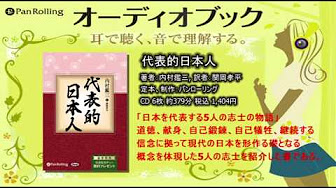
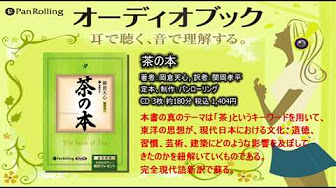
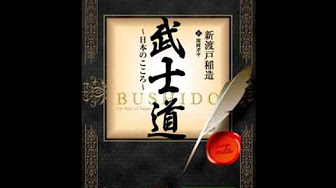
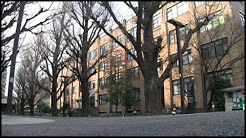
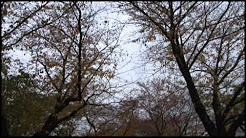
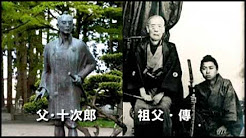
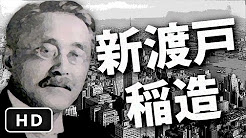
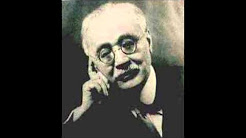



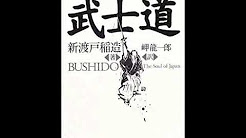
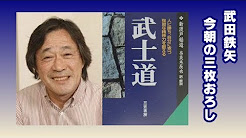
・新渡戸稲造
第1弾「世界を結ぶ『志』~新渡戸稲造の生涯~」、
第2弾「未来につながる『道』~新渡戸稲造の武士道~」、
第3弾「すべてに根ざす『愛』~新渡戸稲造の苦悩~」、
・ 新渡戸稲造の至極の名言集
・「新渡戸稲造の名言」20話
| |
・Bushido: The Soul of Japan by Inazo Nito(1-18)
・Bushido: The Soul of Japan by Inazo Nitobe(1-18)
・武士道「BUSHIDO」Japanese Ver.
・≪AI朗読≫武士道
・【武田鉄矢】『武士道』完全版
|
Bushido, the Soul of Japan
『武士道は定式化されたものではないが、昔もそして今も、日本人を鼓舞し、わが国を動かす原動力なのである』
日本人が日本人たりえる所以。
国家としての歴史的哲学体系を持たない日本の、現代社会においても尚、我々の血肉となり、在り続ける道徳律の根幹は「武士道」にあり。
日本人 新渡戸稲造博士が世界に発信した日本人論。
世代と国境を越え今なお読み継がれている世界的ベストセラー。
西洋・東洋の文化・哲学・思想と照らし合わせながら、その特異性と唯一無二の行動規範・心の拠り所を詳細に解説した普遍の書が、完全現代語訳、プロフェッショナルのナレーションで今蘇る。
21世紀。世界第三位の経済大国であるわが国日本。
政治的にも文化的にもより身近に世界と対峙する現代においてこそ、われわれの心の中に脈々と流れ続ける、日本人が日本人足らしめる「武士道」の精神を紐解く時なのではないだろうか。
本書は1世紀の時を超えた今も尚色褪せること無く、むしろその博識と見解、交える事例とそのユーモアに溢れた表現により現代人の我々にも実に痛快に日本の心「武士道」を理解させてくれる。
「武士道」がいつどのようにして始まったのか、それはどんな特徴を持ち、どのようなことを教えようとしているのか、武士以外の一般民衆にどのような影響を与えたのか、その影響がどれほど永く続いているか。
様々な角度・キーワードで武士の心得、さむらいの心の在り方をリレー形式で綴っている。
世界有数の犯罪率の低さ、大災害時での規律、自発的な他助の精神と行動は時代を超えて、親から子へと語り継がれてきた「道徳律」が存在し続けていることを如実に表している。
知っているようで知らない「日本の心」が、ここに明かされている。
内容抜粋
「今何とおっしゃいましたか?」と敬愛する教授は尋ねた。
「日本の学校には宗教の教育がないということでしょうか?」
そうですと答えると、教授は驚いて足を止めた。そして、今でも耳から離れない声音で、重ねてこう聞いた。
「宗教がない! だとしたら、いったいどうやって道徳を教えるんですか?」
この質問に私は意表を突かれ、とっさに答えを返すことができなかった。というのも、子どもの頃私が学んだ道徳というのは、学校で教わったものではなかったからである。私は、自分の持っている善悪正邪の概念を作り上げているさまざまな要素をひとつひとつ分析してみて、ようやく、それらを私の中に植えつけたのは「武士道」であったことに気づいた。
武士道とは、武士が守るよう求められる、もしくは、そう教えられる道徳的な作法である。文字に書かれたものはなく、せいぜい口伝えで伝えられた格言や、有名な武士や学者が書いたものが残されている程度である。
多くの場合そうしたものさえなく、しかしだからこそかえって深く心に刻まれ、守るべき掟<<おきて>>として強い拘束力を持っていた。ひとりの優秀な頭脳が考え出したものでもなければ、ひとりの高名な人物の生きかたが手本となってできたものでもない。数十年、数百年に及ぶ武士の歴史の中で自然に醸成されたものである。
「義は、道理に従ってためらうことなく、何をなすべきかを決断する力である。死ぬべきときは死を選び、討つべきときには討つことを選ぶ力である」
「戦いの真っただ中に飛び込んで討ち死にするのはいともたやすいことで、身分の卑しい者にもできる。生きるべきときは生き、死ぬべきときにのみ死ぬのが本当の勇気である」
「義に過ぎれば固くなる。仁に過ぎれば弱くなる」
「礼法の要点は精神を養うことにある。礼をもって静かに座っていれば、どんな乱暴者でも危害を加える気になれないほどに」
仁愛や謙譲の精神から生まれた礼儀は、他人に対する思いやりから生まれて、人への同情心を品よく優雅に表現するものだからである。
「心だに誠の道にかないなば祈らずとても神や守らん」
「忠ならんと欲すれば孝ならず、孝ならんと欲すれば忠ならず」
命は主君に仕えるための手段だと考えらえており、その理想形は、名誉のために命を捨てることであった。
「おのれの魂という畑が、優しい心で揺れ動くのを感ずるか? まかれた種が芽吹こうとしているのだ。言葉でそれを妨げてはならぬ。静かに、ひそやかに、自ら芽吹くのを見守っているのだ」
「死を軽<<かろ>>んずることは勇気のいる行為である。しかし、生きることが死よりもつらいときに、あえて生きることこそが本物の勇気である」
「かくすればかくなるものと知りながら やむにやまれぬ大和魂」
目次
訳者序文
初版への序文
改訂第10版への序文
新渡戸博士の『武士道』に寄せて
第1章 道徳体系としての「武士道」
第2章 武士道の源
第3章 「義」――あるいは正義について
第4章 「勇」――勇敢さと忍耐力
第5章 「仁」――慈愛の心
第6章 「礼」
第7章 「誠」――正直さと誠実さ
第8章 「誉<<ほまれ>>」――あるいは名誉について
第9章 「忠義」
第10章 武士の教育と鍛錬
第11章 自制心
第12章 切腹と敵討ちという制度
第13章 刀――武士の魂
第14章 女性の教育と地位
第15章 武士道から大和魂へ
第16章 武士道は今も生きているか
第17章 武士道のこれから
新渡戸稲造(Inazo Nitobe)
文久2年(1862年)、藩士 新渡戸十次郎の三男として南部藩(今の岩手県)に生まれる。
幼少期より東京英語学校に学び、少年期は、後に「代表的日本人」の著者でもある内村鑑三らとともに札幌農学校へ入学し学業を磨いた。
明治維新後はアメリカ・ドイツに渡り農政学を始め様々な研究に従事。
台湾総督府技師として台湾の殖産に携わり功績を挙げる。
国際連盟事務次長としても国際的に活躍。帰国後は様々な学校の教職を歴任した後、東京女子大学初代学長にもなる。
本書「武士道」は英語のみならずポーランド、ドイツ、ノルウェー、スペイン、ロシア、イタリアなど、主として欧米の多様な国の言語に翻訳され世界的ベストセラーとなる。旧五千円札の肖像画の人物としても有名。
TOP

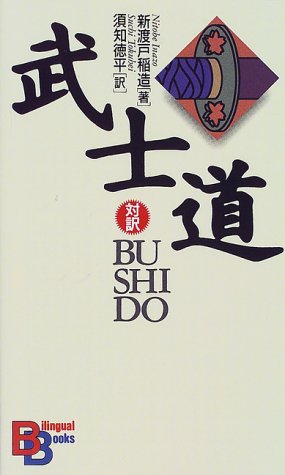
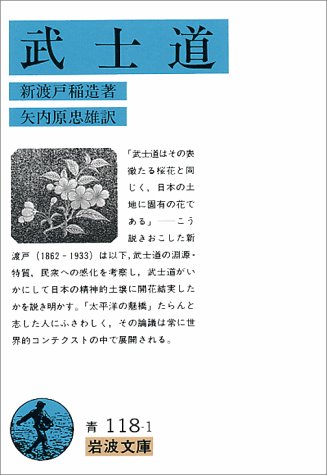
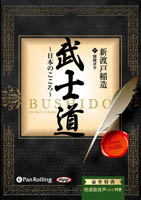 朗読,Read 朗読,Read
|
















 朗読,Read
朗読,Read
















 朗読,Read
朗読,Read